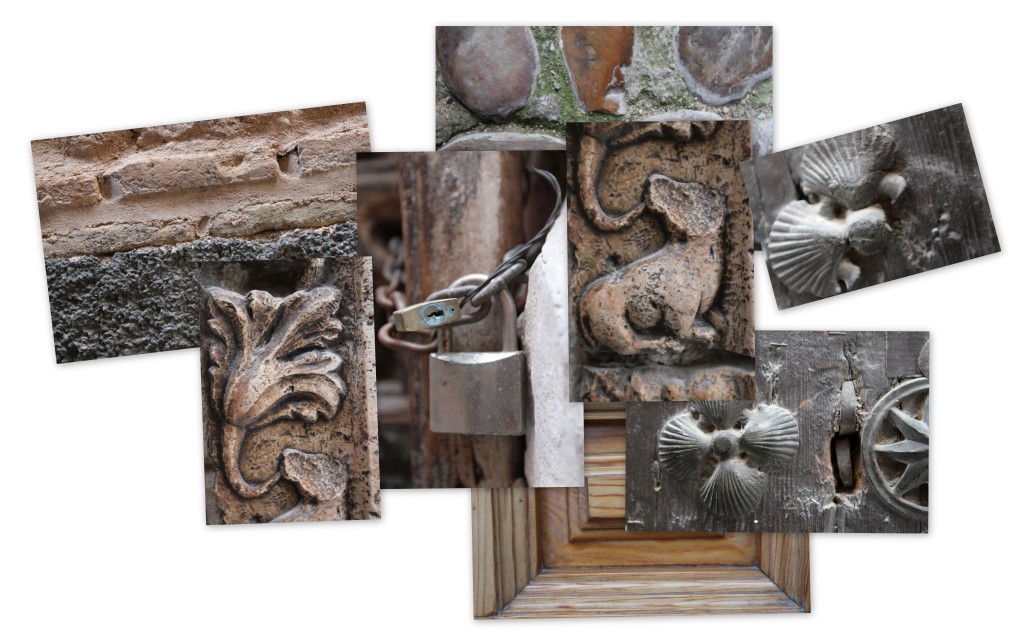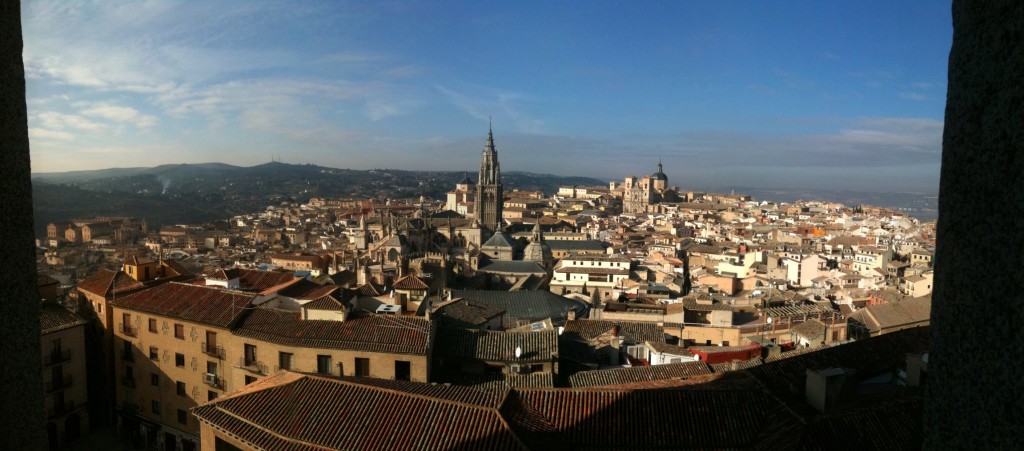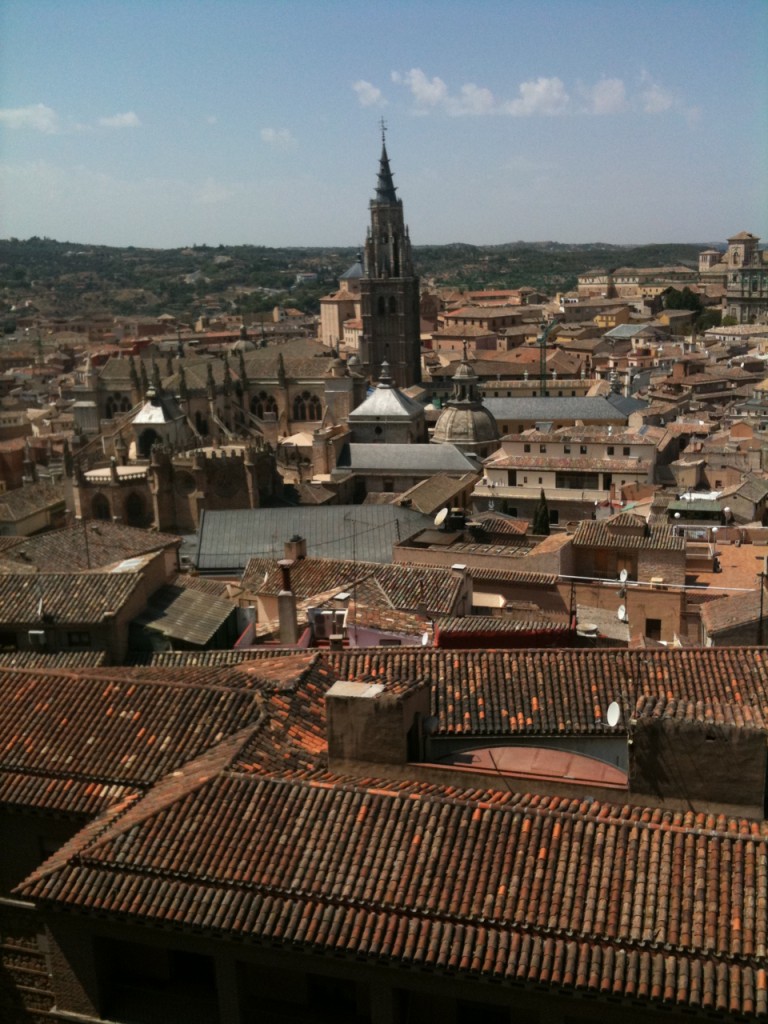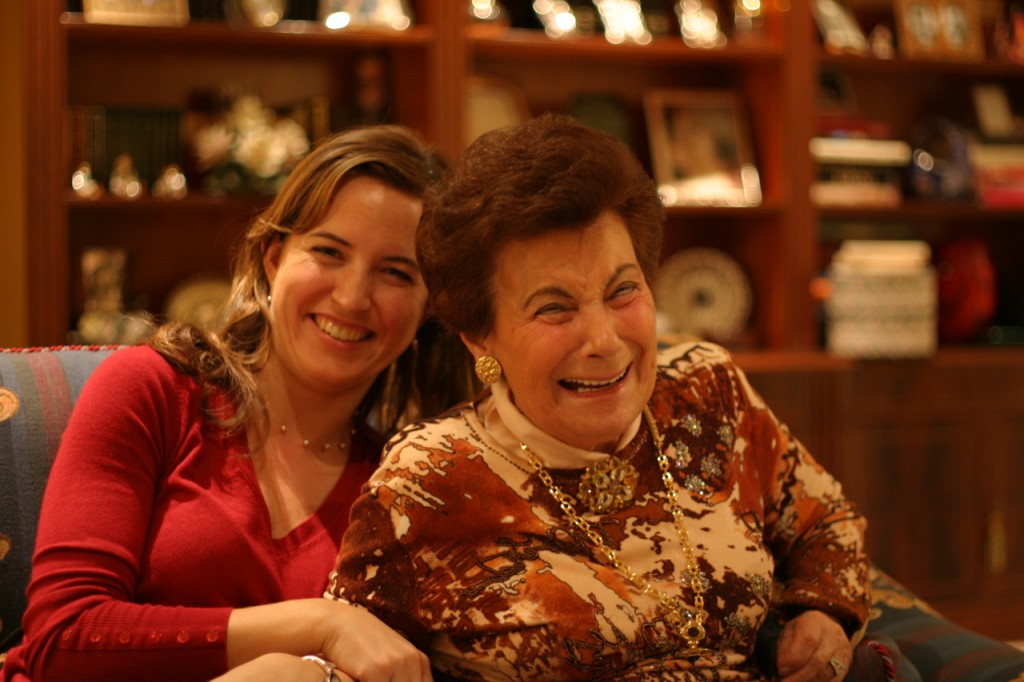Blog's archive
Past and Present in Toledo 1
Living in old-town Toledo is a little like living in a museum, the skyline, buildings, narrow stone streets marking an everyday connection to the past like the tapestries and tall thrones of a centuries-old royal museum. The main streets of town are dominated by tourist stores, golden souvenirs, handbags stamped with “Toledo” hanging next to fluffy red polka-dot Flamenco dresses. My father-in-law has made his living selling these souvenirs, walking around town visiting the owners of stores filled with glittering gold plates, jewelry, and long, silver swords. All traditional products from these parts, once handmade in small workshops, hammer meeting metal to pound the old damascino designs, now shipped from factories in China, assembled here.
As I drive into town to visit my Spanish Grandma, I look at the city, the Alcazar and Cathedral standing tall against the late afternoon sky. I think about how living in this museum of a town seems to go hand in hand with conservative values and a desire to keep the past alive, keep the uncertainty of present-day change at bay. Isn’t that what growing old is about, after all? They say we all grow more conservative as we grow older, working to protect what we have, pass on what we have learned to the next generation. When there’s money involved, or power, people hold even tighter, guarded and fearful of the impulsiveness of the young.
Having grown up with little connection to the past, not even knowing my grandparents, living far from where my parents were born, I’ve often felt seduced by the curves of history here, Roman bridges still providing a path across the river, castles a roof over peoples’ head. But it’s the stories that sweep me away, capture my imagination, make me wonder what kind of person I’d be if I were born in a place like this. How is it different to become who you are when so many physical reminders of the past surround you each day?
While packing for our trip home tomorrow, I listen to a podcast I’ve discovered called New Letters on the Air, an old episode from last June where Tobias Wolff talks about his book Old School. He says the book is partly about questions of identity, “how do we become the person we’re going to be”. He asks, “What part does imagination play in that?”
Wolff makes me think about the possibilities for creating who we are; he makes me feel like who we are is merely a question of the bounds of our imagination. At the same time, being in Toledo, listening to my Spanish Grandma’s stories, makes me think about how the past draws boundaries around our experience, colors how we see the present. What do you think matters more in defining ourselves, imagination or the past? How do both matter to you?




